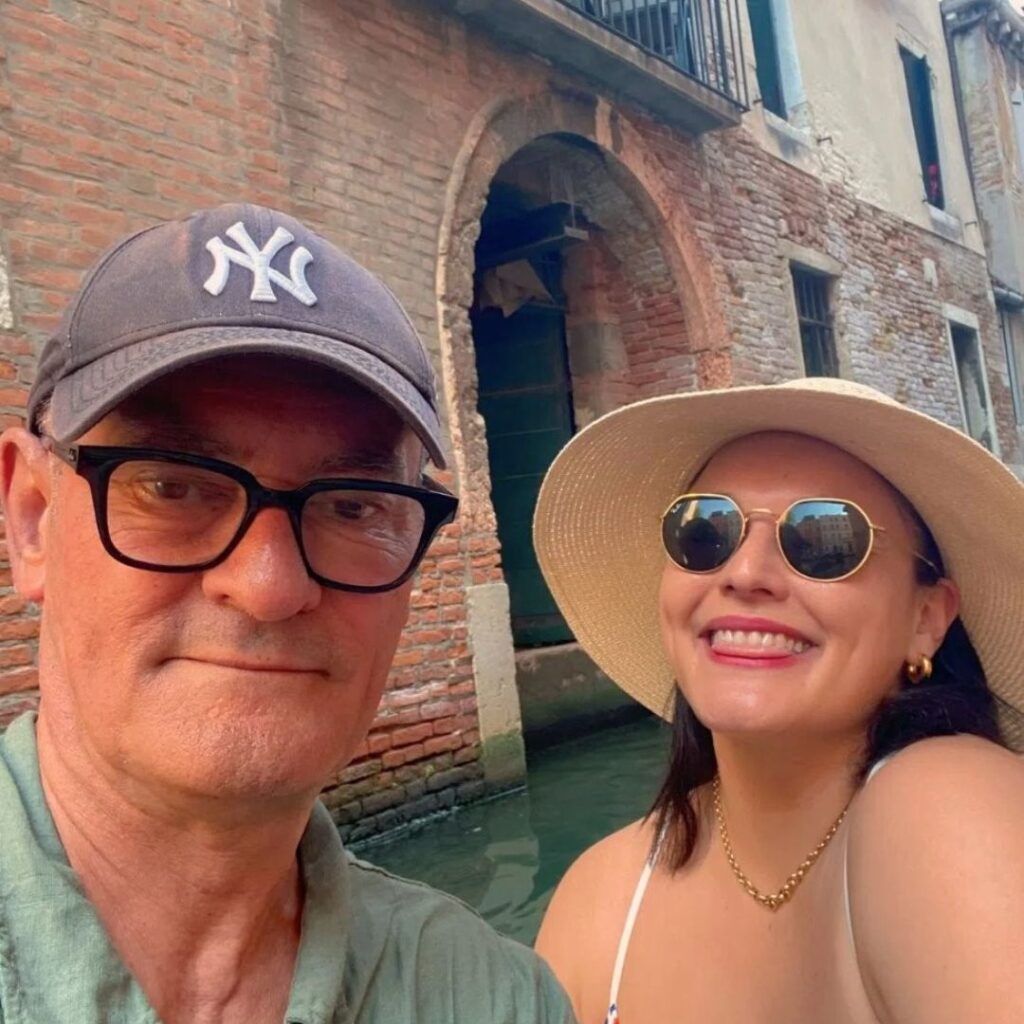Recently updated on July 11th, 2025 at 09:46 am
Travel is a powerful tool to deal with many of emotions, positive or negative. Grief travel, also coined as a ‘griefcation’, is just one of the ways travel can help a person process intense emotions throughout the grieving process.
With over 7,000 entries submitted just to the 2025 edition we received a huge variety of stories to our Trafalgar Unlocked Awards, but many focused on one thing: the power of travel to connect people back to themselves, others, and even the person they lost, through periods of grief.


One of the leading voices on the matter is Dr. Karen Wyatt, host of “End-of-Life University” podcast. While grief is an incredibly personal journey that will look different for everyone, she established six goals that grief travel should accomplish: restoration, contemplation, physical activity, commemoration, information and intuition. When planning any form of grief travel, it can be useful to look at what you might need from your trip through this lens.
While the need for grief travel can arise from the loss of a loved one, it can also be helpful for other types of grief, whether it’s a breakup, estrangement, divorce, or major change that leaves you mourning your life before.
Restorative Grief Travel
Surrounding yourself with community is one of the best things you can do when you’re grieving – this is an important aspect of restorative grief travel, as it allows you to rest or retreat. Wyatt suggests: “Consider visiting friends or family who will help care for you, offering companionship or solitude as needed.”
Dr Charlotte Russell, Clinical Psychologist and Founder of The Travel Psychologist blog, notes that: “It is common and understandable to feel easily overwhelmed whilst grieving. This means that it is sensible to consider destinations that will be quieter and will allow you to do things at your own pace.” Restorative trips aren’t about filling your days with activities, but taking things slowly and surrounding yourself with people you love.
Jill Hanson, Trafalgar Unlocked Awards winner


“My youngest son and I have been through some rough times. My oldest son passed away 12 years ago and then three months later, I was diagnosed with breast cancer. You learn to enjoy life and never take anyone or anything for granted. So, when my son said to me that we should take one more trip together before he starts school, I jumped into action, after a few tears of joy! (When your adult son still wants to vacation with his mom, you book a trip!)
At Stonehenge, besides the feeling of awe of just standing in front of this formation you have heard about your whole life, I will never forget how hard I laughed at myself ( and my son’s incredulous reaction) when I couldn’t figure out how to take the recreation photos placed around Stonehenge! We saw so many incredible historical sites that I will not forget but the memories with my son are priceless! The adventure, the silliness, and the love are something you can never replace. They are in my heart forever.”
Intuitive Grief Travel
Trusting your intuition can be difficult when you’re in a state of grief, but intuitive grief travel can help you reconnect with yourself and help you process your emotions.
Unstructured, intuitive grief travel fosters a sense of adventure and open-mindedness, and requires traveling somewhere that you feel you are able to take risks – even small ones. This style of travel would see you arrive without a plan, where you can see what experiences or inspiration comes your way.
“When you follow your intuition, you might discover a connection to a certain place that helps you process your grief–a connection that you couldn’t have planned or discovered by reading a guidebook in advance,” says Wyatt. “To enjoy intuitive travel you’ll need an open mind and curiosity.”
Stella Russomano, Trafalgar Unlocked Awards winner


“When I lost my husband to cancer after 33 years of a blissful marriage, my life was thrown into a whirlwind. I was accustomed to always having him by my side. It was a difficult adjustment to do things solo and I was especially fearful to travel alone. However, I realized that I can’t let fear prohibit me for living a life he was robbed of. Trafalgar took such good care of me (airport pickup, great accommodations, luggage pickup and delivery each hotel change, a guide that cares, and the most amazing fellow travelers that one could ask for. Don’t let fear or any other concerns deprive you of travel!”
Commemorative Grief Travel
Travel is a powerful way to commemorate a loved one, whether it’s revisiting places you went to together, going somewhere that was on their travel list, or returning to somewhere that was important to them – though don’t underestimate the emotional impact this form of grief travel might have.
As Russell suggests, “You may be drawn to visiting [places that were special to them], but it is important that you feel ready to do this, and it is not ‘too soon’ for you. Everyone moves at their own pace so do not rush yourself.”
If you are ready to do so, returning to a place that brings you positive memories of the person you are commemorating can help you feel more connected with them, and many people create rituals that foster that connection, like visiting the same place each year.
May Diamond, Trafalgar Unlocked Awards winner


“That moment in the gondola in Venice was one of the most meaningful of our entire trip. As we glided through the canals, I couldn’t help but think about how my mum and dad had once been in this same city, sharing their own special moments before I was even born. It felt like we were stepping into a piece of their history, reconnecting with her in a way that words couldn’t quite capture.
Sitting beside my dad, watching him take it all in, I could see how much it meant to him too. It wasn’t just about sightseeing – it was about remembering, about feeling close to her, and about sharing this experience together. For both of us, that gondola ride wasn’t just a moment in time; it was a bridge between past and present, a way of honoring my mum’s memory while also creating something new – just the two of us.”
Contemplative Grief Travel
Contemplation can be more intense, and Wyatt suggests this is you are further along in your grief journey when you’re ready to spend some time alone with your emotions. Locations like retreats and spas are great for this style of travel, or anywhere you can bring a journal, book, arts and crafts, or something that can help you express yourself and reflect on how you’re feeling.
Physically Active Grief Travel
“Some of us process our emotions more easily when we have a physical outlet to help dissipate stress,” says Wyatt. Physical activity can help provide out outlet for intense emotions that grief brings up, whether that’s going on a hiking trip, camping, or surfing (or anything active that brings you joy). “A company that provides guided adventure vacations might be helpful to handle some of the extensive planning that is necessary for this type of travel,” Wyatt continues.
Tour not found.Informative Grief Travel
This style of grief travel can be therapeutic if you have questions about the past, and the person you lost. If you’re including historical research in your journey, then plan your trip wisely to make sure you get the most out of it. “Consider doing background research on the place you plan to visit before you go so you can maximize your time once you get there. Take careful notes, ask lots of questions and search out people who may have stories that can help you fill in some missing pieces,” Wyatt suggests.